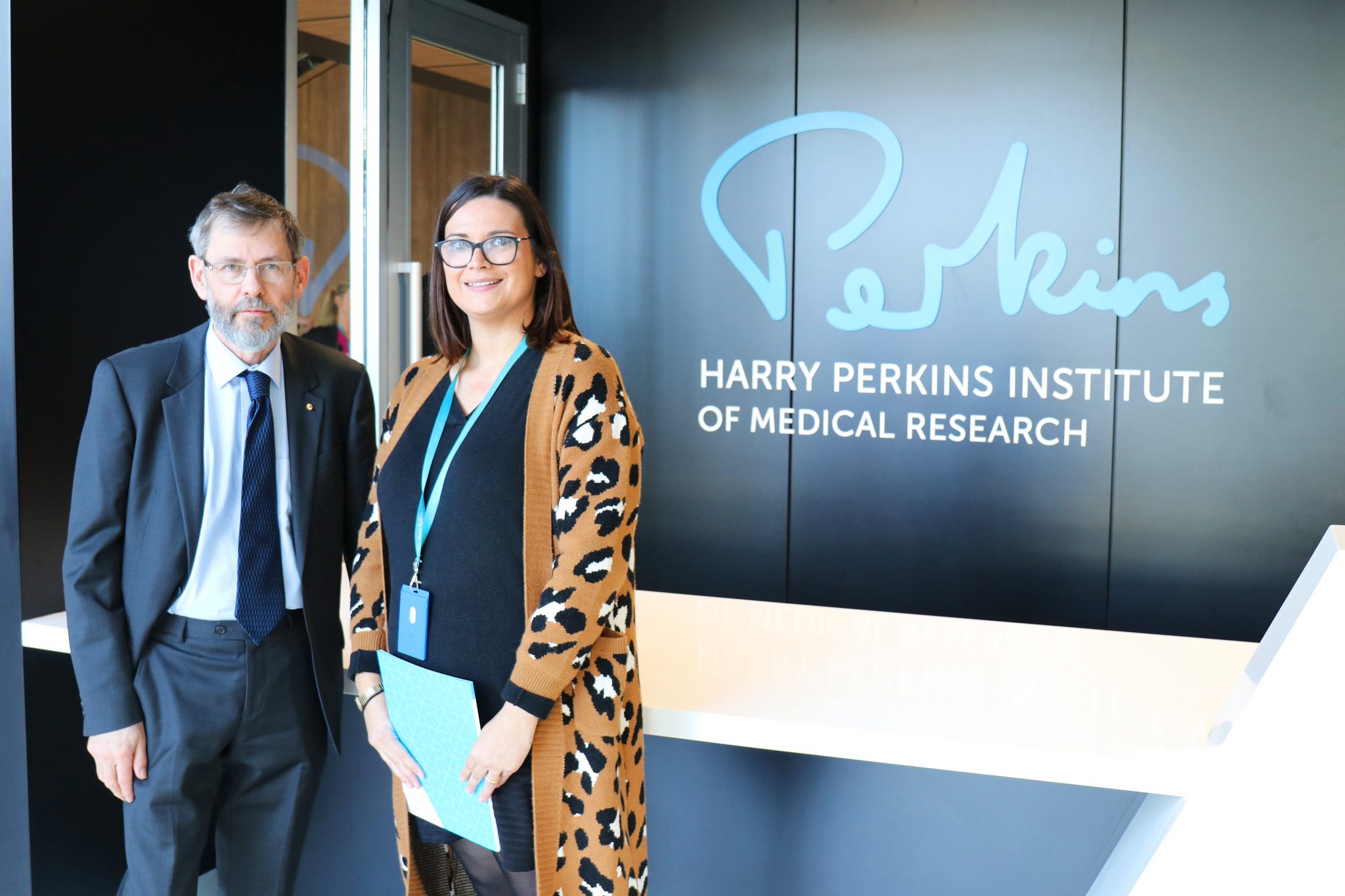
A significant study that found a link between an energy-producing gene and a hereditary heart condition has been awarded the annual James Hopley Student Publication Award.
Kara Perks from the Harry Perkins Institute’s Mitochondrial Medicine and Biology laboratory received the award for her research journal article on mitochondrial function in heart health.
Ms Perks led the investigation which aimed to gain a better understanding of the role that mitochondria play in the development of cardiomyopathy, an inherited heart disease that makes it difficult for the heart to pump blood.
In the study, Ms Perks and her research team examined the nature of mitochondrial dysfunction in cardiomyopathy and aimed to identify the unknown role of the essential protein PTCD1.
The team identified the function of PTCD1 by using gene editing technology to remove the PTCD1 protein from heart and skeletal muscle DNA.
The PTCD1 protein was found to be essential for the stability of cellular energy production and the team found that loss of the PTCD1 gene resulted in severe dilated cardiomyopathy (DCM), skeletal muscle dysfunction and ultimately, a premature death.
Ms Perks said the findings from this study could have important implications for cardiomyopathy patients.
“DCM is prevalent, affecting about one in 2,500 individuals,” she said.
“However, the prevalence of DCM may be higher because of incomplete diagnosis. This publication identifies a new gene involved in DCM and may contribute to an increase in correctly diagnosed DCM patients.”
“This pre-clinical model of DCM provides a unique opportunity to investigate the role of mitochondrial dysfunction in the onset, progression and impact of DCM and identifies possible targets for treatment of cardiomyopathies caused by mitochondrial dysfunction.”
The James Hopley Student Publication Award is presented annually to the Harry Perkins Institute of Medical Research student with the best first author primary research journal article published in each calendar year.
